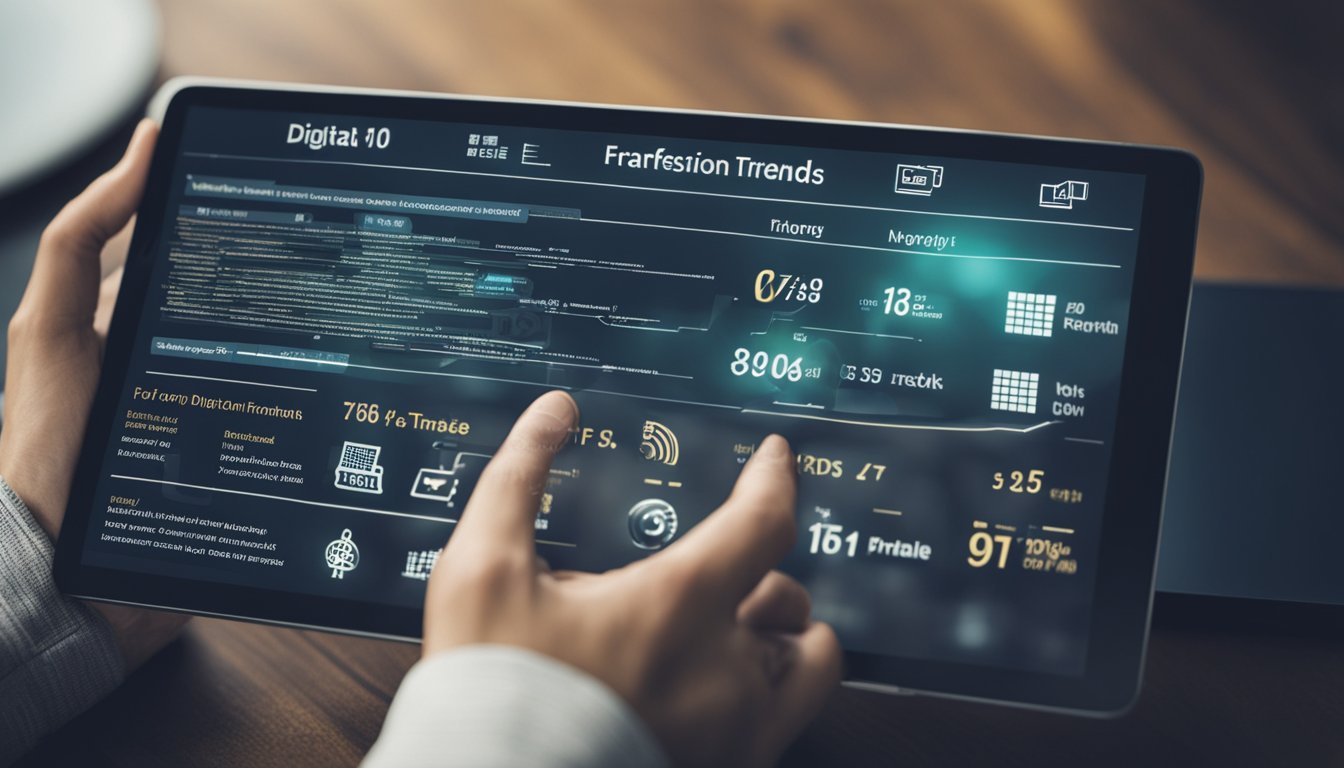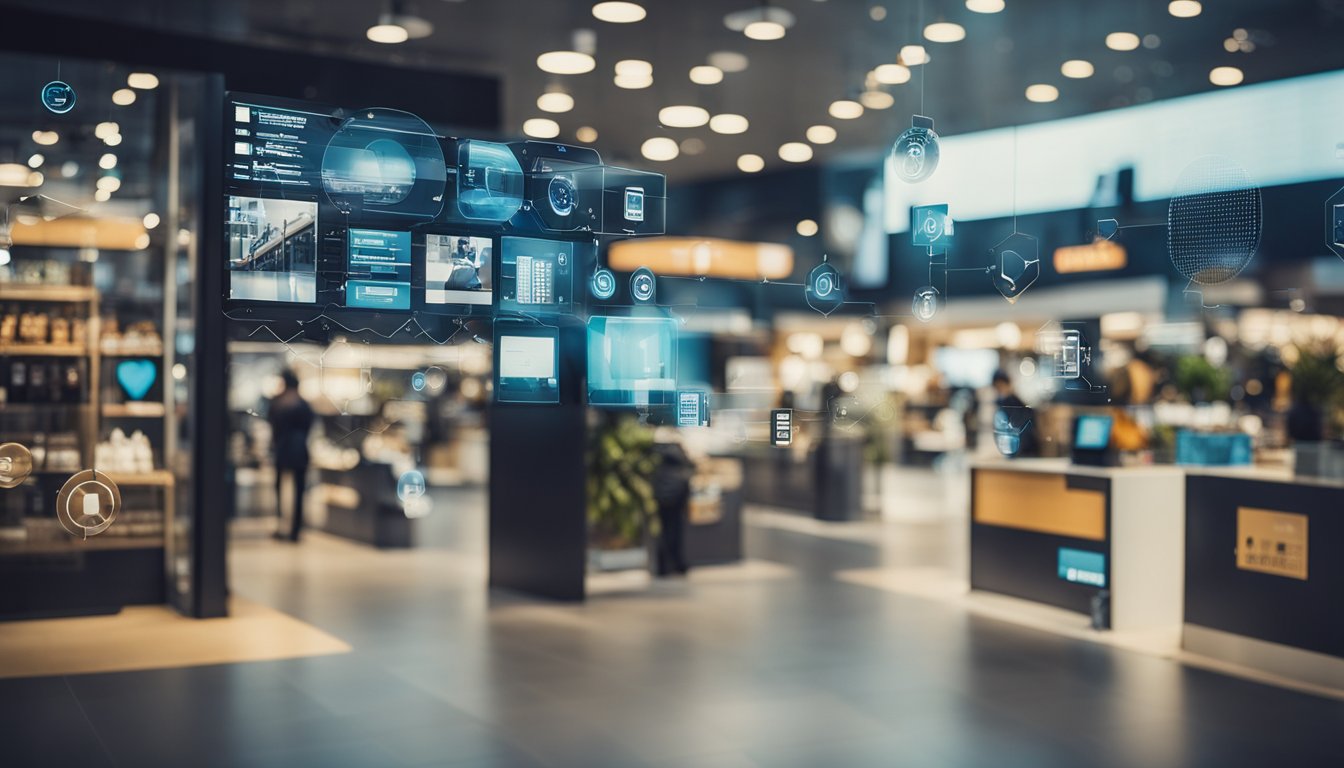Top 10 Retail Digital Transformation Trends for Beyond The Future of Shopping
As we move into the future, the retail industry is set to undergo a significant transformation. With the rise of digital technologies, retailers are looking for ways to stay ahead of the curve and meet the changing needs of consumers. In this article, I will explore the top 10 retail digital transformation trends that every retailer needs to keep an eye on in 2023 and beyond.

The pandemic has had a significant impact on the retail industry, accelerating the adoption of digital technologies and changing consumer behavior. As a result, retailers are now focusing on creating a seamless digital experience for their customers. With the rise of e-commerce and mobile shopping, retailers are investing in technologies such as augmented reality, virtual reality, and artificial intelligence to enhance the customer experience and drive sales.
With the retail industry undergoing a significant transformation, it is essential for retailers to stay ahead of the curve and adopt the latest digital transformation trends. In this article, I will highlight the key digital transformation trends in retail and explore the future of the retail industry. By staying informed and adopting the latest technologies, retailers can create a more engaging and personalized shopping experience for their customers.
Key Takeaways
- The pandemic has accelerated the adoption of digital technologies in the retail industry.
- Retailers are investing in technologies such as augmented reality, virtual reality, and artificial intelligence to enhance the customer experience and drive sales.
- By staying informed and adopting the latest technologies, retailers can create a more engaging and personalized shopping experience for their customers.
Impact of Pandemic on Retail Industry

The COVID-19 pandemic has had a profound impact on the retail industry worldwide. The global pandemic has disrupted the traditional way of doing business, forcing retailers to adapt quickly to the new reality. With social distancing measures and lockdowns in place, offline shopping has been severely impacted, while online shopping has seen a significant surge in demand.
The pandemic has accelerated the shift towards digital transformation in the retail industry. Retailers who were slow to embrace digital technologies have been forced to catch up quickly, as consumers have increasingly turned to online shopping for their needs. As a result, retailers have had to invest heavily in their digital capabilities, from e-commerce platforms to supply chain management systems.
One of the key changes brought about by the pandemic has been the shift in consumer behavior. With people spending more time at home, there has been a surge in demand for home delivery services. Retailers have had to quickly adapt to this new reality, with many offering same-day or next-day delivery options to meet the growing demand.
Another significant impact of the pandemic has been the disruption to supply chains. With factories and warehouses shutting down due to lockdowns and social distancing measures, retailers have faced significant challenges in sourcing products. This has led to shortages of some products and delays in delivery times.
In conclusion, the COVID-19 pandemic has had a profound impact on the retail industry, accelerating the shift towards digital transformation and disrupting traditional ways of doing business. Retailers who have been able to adapt quickly to the new reality have been able to thrive, while those who have been slow to embrace digital technologies have struggled to keep up with the changing consumer behavior.
Key Digital Transformation Trends in Retail

As we move beyond 2023, retailers must be aware of the latest digital transformation trends that are shaping the industry. In this section, I will cover some of the key trends that retailers should keep in mind to stay ahead of the competition.
Artificial Intelligence and Machine Learning
AI and Machine Learning algorithms are transforming the retail industry by providing retailers with insights into customer behavior and preferences. These insights can be used to create personalized recommendations, improve inventory management, and optimize pricing strategies. Retailers are also using chatbots to provide better customer service and enhance the retail experience.
Augmented Reality and Virtual Reality
AR and VR are becoming increasingly popular in the retail industry, providing customers with immersive shopping experiences. Retailers are using these technologies to create virtual stores, allowing customers to browse products in a realistic environment. Additionally, AR and VR can be used to provide customers with personalized recommendations and enhance brand loyalty.
Blockchain and Dapps
Blockchain technology is being used to create more secure and transparent supply chains, reducing the risk of fraud and counterfeiting. Decentralized apps (Dapps) are also becoming more popular, providing retailers with new ways to engage with customers and improve the retail experience.
Hyper-Personalization and Customer Experience
Hyper-personalization strategies are becoming more important than ever, with retailers using data analytics and AI to create personalized experiences for customers. Retailers are also focusing on improving the customer journey, providing customers with a seamless experience across all touchpoints.
Omnichannel Retail and E-Commerce
Omnichannel retail and e-commerce are becoming increasingly important, with customers expecting a seamless experience across all channels. Retailers are using technology to create omnichannel customer journeys, allowing customers to shop online and in physical stores. Additionally, social commerce is becoming more popular, with customers using social media platforms to make purchases.
Technology Adoption and Investment
Retailers are investing heavily in technology to improve efficiency and stay competitive. This includes adopting new technologies like quantum computing and virtualization, as well as investing in SaaS solutions and hyperscalers like Google, Microsoft, AWS, IBM, Oracle, and SAP.
Data Analytics and Big Data
Data analytics and big data are becoming increasingly important in the retail industry, providing retailers with insights into customer behavior and preferences. Retailers are using predictive analytics to improve inventory management and optimize pricing strategies.
Contactless Payments and Touchless Interactions
Contactless payments and touchless interactions are becoming more important in the wake of the COVID-19 pandemic. Retailers are adopting new technologies like NFC and QR codes to provide customers with a safe and convenient way to make purchases.
Remote and Hybrid Work
Remote and hybrid work are becoming more popular in the retail industry, providing retailers with new ways to improve efficiency and reduce costs. This includes adopting new technologies like video conferencing and collaboration tools, as well as rethinking the operating model to support remote and hybrid work.
In summary, retailers must keep up with the latest digital transformation trends to stay competitive in a disruptive environment. By adopting new technologies and investing in data analytics and customer experience, retailers can improve efficiency, enhance the retail experience, and stay ahead of the competition.
Future of Retail Industry

As we move beyond 2023, the retail industry is poised for significant changes. The digital transformation of the retail industry will continue to accelerate, driven by the need for greater efficiency and the adoption of new technologies. The future of the retail industry will be shaped by both disruption and opportunity.
Digital transformation has already changed the retail industry in many ways, and it will continue to do so in the future. Retailers will need to adapt to these changes in order to remain competitive. The adoption of new technologies, such as artificial intelligence, machine learning, and blockchain, will be critical to the success of retailers in the future.
Efficiency will also be a key factor in the future of the retail industry. Retailers will need to find ways to streamline their operations and reduce costs in order to remain profitable. This will require the adoption of new technologies and the implementation of more efficient processes.
The future of the retail industry will also be shaped by disruption. New players will enter the market, and existing players will need to adapt to stay relevant. Retailers will need to be agile and adaptable in order to survive in this changing landscape.
In conclusion, the future of the retail industry is both exciting and challenging. Digital transformation, technology adoption, efficiency, and disruption will all play a significant role in shaping the industry in the years to come. Retailers that are able to adapt and embrace these changes will be well-positioned for success in the future.
Frequently Asked Questions

What are the top retail technology trends for 2023?
As we move towards 2023, the top retail technology trends include digitized in-store experiences, hybrid retailing, retail data analytics, cost optimization, and personalized customer experiences. These trends are aimed at improving the customer experience and increasing profits for retailers.
What are the key digital transformation trends for retail?
The key digital transformation trends for retail include the adoption of artificial intelligence (AI), machine learning (ML), and the Internet of Things (IoT). Other trends include the use of chatbots, augmented reality (AR), and virtual reality (VR) to enhance the customer experience.
What are the most important digital business trends for retail in 2023?
The most important digital business trends for retail in 2023 include the adoption of cloud computing, blockchain technology, and big data analytics. Retailers are also focusing on creating seamless omnichannel experiences for customers by integrating their online and offline channels.
What are the future trends in retail technology?
The future trends in retail technology include the use of voice-activated assistants, smart mirrors, and smart shelves. Retailers are also exploring the use of drones and autonomous vehicles for delivery and inventory management.
What are the latest digital retail trends?
The latest digital retail trends include the use of social media for marketing and customer engagement, the adoption of mobile payment systems, and the use of virtual try-on technology. Retailers are also investing in cybersecurity to protect their customers' data.
What are the statistics on digital transformation in retail?
According to a report by Statista, spending on digital transformation in retail is forecasted to reach $1.8 trillion in 2022, and this number is expected to increase to $2.8 trillion by 2025. Digitally transformed organizations are predicted to generate $53 trillion in 2023, which is over half of the global nominal GDP.

We are committed to delivering a new level of automation that will help organizations save time, money, and staffing resources.
 WRITE FOR US!
WRITE FOR US!
